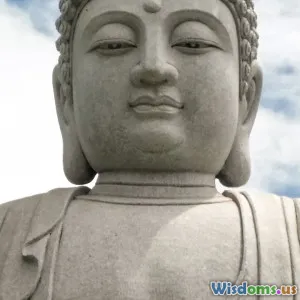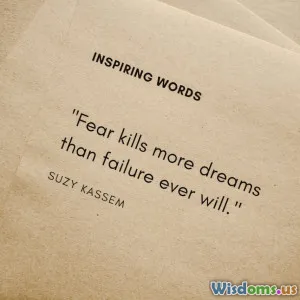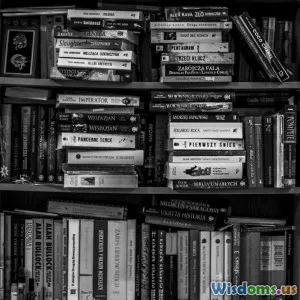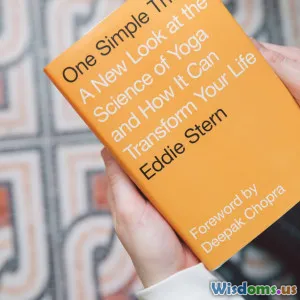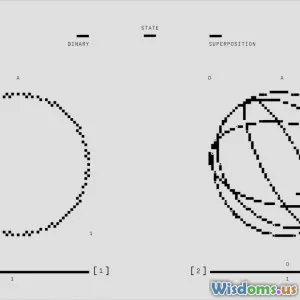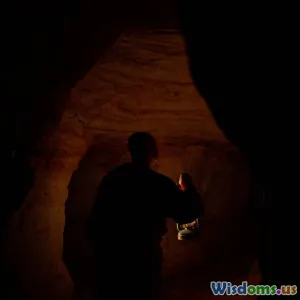
Philosophical Wisdom for Modern Living
6 min read Discover timeless philosophical wisdom adapted for thriving in today’s fast-paced world. (0 Reviews)
Philosophical Wisdom for Modern Living
In an age dominated by rapid technological advances and nonstop information flow, many find themselves overwhelmed and bereft of peace. Yet, centuries-old philosophical wisdom offers powerful tools tailored not only to confront but also to thrive amidst the complexities of modern life. This exploration unravels how ancient insights can inform contemporary living, fostering mindfulness, resilience, and ethical clarity.
The Enduring Relevance of Philosophy Today
Philosophy, often considered an abstract discipline, serves as a practical guide for how we choose to live, act, and understand ourselves. The challenges of the 21st century—mental health crises, digital distractions, ethical dilemmas, and social fragmentation—call for reflective frameworks that philosophy has been offering for millennia.
For example, the Stoics, philosophers from ancient Greece and Rome, emphasized developing inner virtue to maintain equanimity amid external chaos. This perspective resonates profoundly today as we grapple with global uncertainties and personal anxieties.
Mindfulness Through the Lens of Ancient Thought
Stoicism: Mastering Your Inner World
Stoicism teaches us to distinguish between what we can control and what we cannot. Epictetus famously said, “It's not what happens to you, but how you react to it that matters.” This principle encourages modern individuals to focus on their responses, curbing emotional turmoil.
Scientific studies support this approach. Research from the University of California, Berkeley, has shown that cultivating mindfulness—a practice aligned with Stoic acceptance—can reduce stress and improve emotional regulation.
Buddhist Philosophy and Present Moment Awareness
Buddhism, with its emphasis on mindfulness meditation, teaches living fully in the present, experiencing life without attachment or judgment. This approach not only mitigates suffering but enhances mental clarity and well-being.
Modern therapeutic techniques like Mindfulness-Based Stress Reduction (MBSR) derive from such traditions, demonstrating their applicability and effectiveness in contemporary health care.
Resilience: Building Strength from Within
Existentialism: Finding Meaning Amidst Uncertainty
Philosophers like Viktor Frankl, himself a Holocaust survivor, popularized the idea that finding meaning is essential, especially in adversity. His book, Man’s Search for Meaning, illustrates how embracing a purposeful outlook fosters resilience.
In today’s fluctuating job markets and social climates, Frankl’s philosophy encourages cultivating personal values that provide direction and strength.
Confucianism and Social Harmony
Confucianism focuses on ethical relationships and social duty. In modern contexts, these teachings encourage community building and a sense of belonging, key to withstanding isolation and fostering resilience.
Business practices inspired by Confucian values emphasize respect and trust, which can lead to healthier work environments and societal cohesion.
Ethical Clarity in a Complex World
Aristotle’s Doctrine of the Mean
Aristotle proposed virtue lies between extremes—a balanced approach is key to moral behavior. This idea aids navigating today’s polarized social and political climate by advocating moderation, reasoned judgment, and empathy.
Such ethical frameworks help individuals avoid reactionary extremes and promote thoughtful dialogue.
Utilitarianism: Weighing Consequences for Greater Good
Philosophers like John Stuart Mill proposed maximizing happiness for the greatest number as an ethical guideline. This utilitarian approach challenges us to examine the wider impact of our actions in interconnected societies.
In practical terms, it encourages environmental stewardship and social responsibility, critical issues in the 21st century.
Applying Philosophical Wisdom: Practical Tips
- Daily Reflection: Emulate Marcus Aurelius’s practice of journaling to enhance self-awareness.
- Mindful Breaks: Integrate short moments of mindfulness during hectic routines informed by Buddhist techniques.
- Purpose Identification: Regularly revisit personal values to maintain focus and resilience, echoing existentialist principles.
- Dialogue Over Division: Employ Aristotelian ethics to engage with opposing views respectfully.
Conclusion: Philosophy as a Compass for Modern Life
Philosophical wisdom is not relic knowledge preserved in dusty books but a living guide adapted to modern challenges. By blending Stoic endurance, Buddhist mindfulness, existential meaning-seeking, Confucian harmony, and Aristotelian ethics, individuals cultivate deeper self-understanding and societal engagement.
Embracing these philosophies today offers practical, transformative tools—enhancing mental health, fostering resilience, and nurturing ethical clarity. As the world grows more complex, this ancient wisdom stands as a beacon, encouraging thoughtful, intentional living.
“The unexamined life is not worth living.” – Socrates
Let us use the power of philosophical inquiry to examine, transform, and enrich our modern existence.
Rate the Post
User Reviews
Popular Posts










